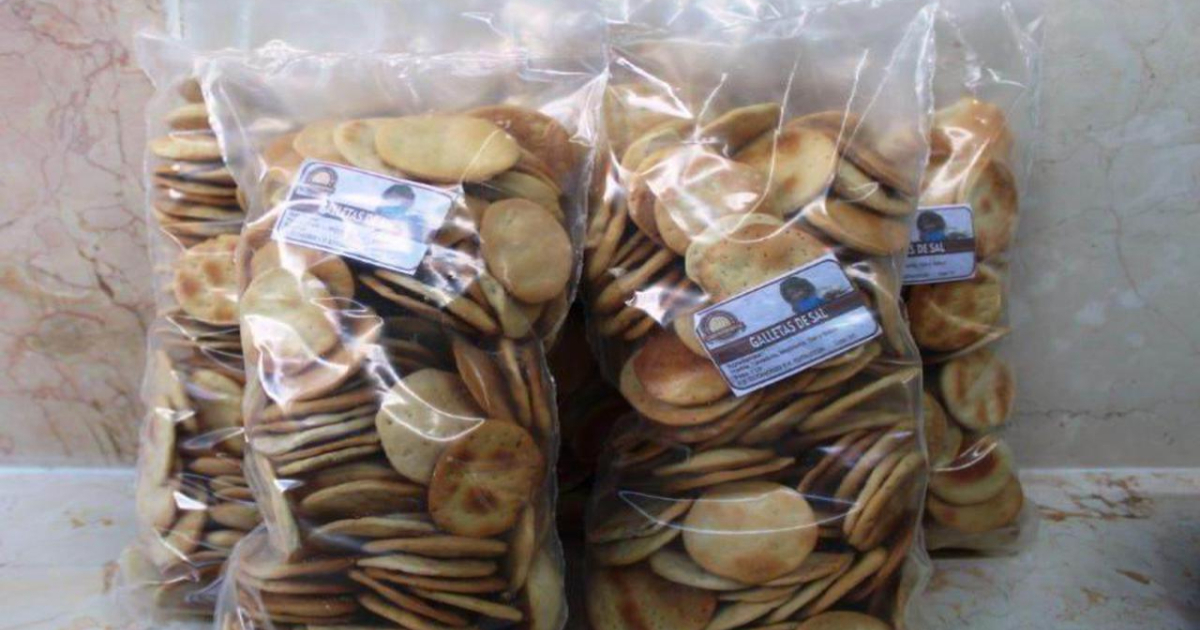
The government ofCiego de Avila He said that self-employed workers in the territory will be able to sell products made withwheat flour, as long aswill demonstrate the legal origin of the raw material.
“The Provincial Government of People's Power (GPPP) in Ciego de Ávila denied false news related to restrictions on producing foods based on wheat flour in the state and non-state sectors, and the allocation of products from the regulated family basket corresponding to the month of September,” the Facebook page stated in this regard.Avila Portal.
In this way, the authorities of that province joined a national trend of denying what they call “fake news” about the prohibition of the commercialization of these foods, because according to Yadiel Pérez Téllez, coordinator of Programs and Objectives who deals with the Agri-Food sphere, “all "Economic actors, authorized and with the possibility of accessing markets in different currencies, can continue the manufacture and sale of foods obtained from wheat flour."
The official added that in all the municipalities of Ciego de Ávila there are the necessary resources to guaranteebread production that the population requires.
In total there are 419,000 units of food that are distributed there through theration book, to which are added the needs of the so-called prioritized organizations such as schools and health centers, in addition to the gastronomic network, the latter subject to the raw materials left over from the other priorities.
Pérez Téllez was also forced to clarify, in relation tothe basic basket September, that "the sale began with three pounds of rice, due to delays in the arrival of imports of that product to the port of Nuevitas, in the province of Camagüey, but that "the completion of the remaining seven is guaranteed in the first days of the month".
However, the manager acknowledged that to fulfill this purpose, additional shipments are required from Sancti Spíritus, which began to be transported on August 28.
He also stated that the greatest delays in the distribution of this food are concentrated in the main municipality and in the town of Chambas, with a deficit of 30 and 10 tons, respectively, which they aspired to resolve during the first two days of the month, a time that It has already expired, because this Sunday is September 3rd.
“Edible oil, with around 190 thousand liters (L) planned for Avilanian consumers, was another of the products that presented delays in arrival, therefore, its transfer is expedited to finalize the distribution, this Friday the 2nd, in Primero of January, Florence and the main town, territories with the greatest delays.
Likewise, the movement of the 46 tons of coffee required to complete this product is carried out, so that on the first day of September the deficit in Primero de Enero and Bolivia had to be made up, while another 19 tons destined for the capital of Avila will be deposited in the wineries before the end of day 2,” indicated the source.
Pérez Téllez also explained thatSugar was one of the foods with the greatest difficulties, since only four pounds of crude oil will be sold, given the shortage in the refining country. Distribution will also be affected, particularly in the municipalities of Bolivia, Ciro Redondo and Ciego de Ávila, the latter with 86 wineries that need 1,240 tons.
According to the manager, "the allocation of six tons of beans is pending for an area of the main municipality, a situation that is being addressed with the required priority and must be resolved in the next few hours."
Lack of bread flour and other basic food productsThey are a reality throughout the country, hence local governmentsjoin the indication to deny alleged “false news” on the prohibition of self-employed workers and other non-state economic actors from selling preparations made with that raw material.
"FromThe government of Havana states that there are no limitations for the sale of pizzas, breads, sweets or other flour-based products. In recent days, several people have referred online to an alleged provision that prohibits non-state actors from marketing these foods, based on the situation generated with supplies," the official journalist wrote on his Facebook account.Lazaro Manuel Alonso.
In additionin Sancti Spíritus the authorities denied that there was a resolution to prohibit private merchants with patents to make bread and cookies from selling these products in their territory.
What do you think?
COMMENTFiled in: